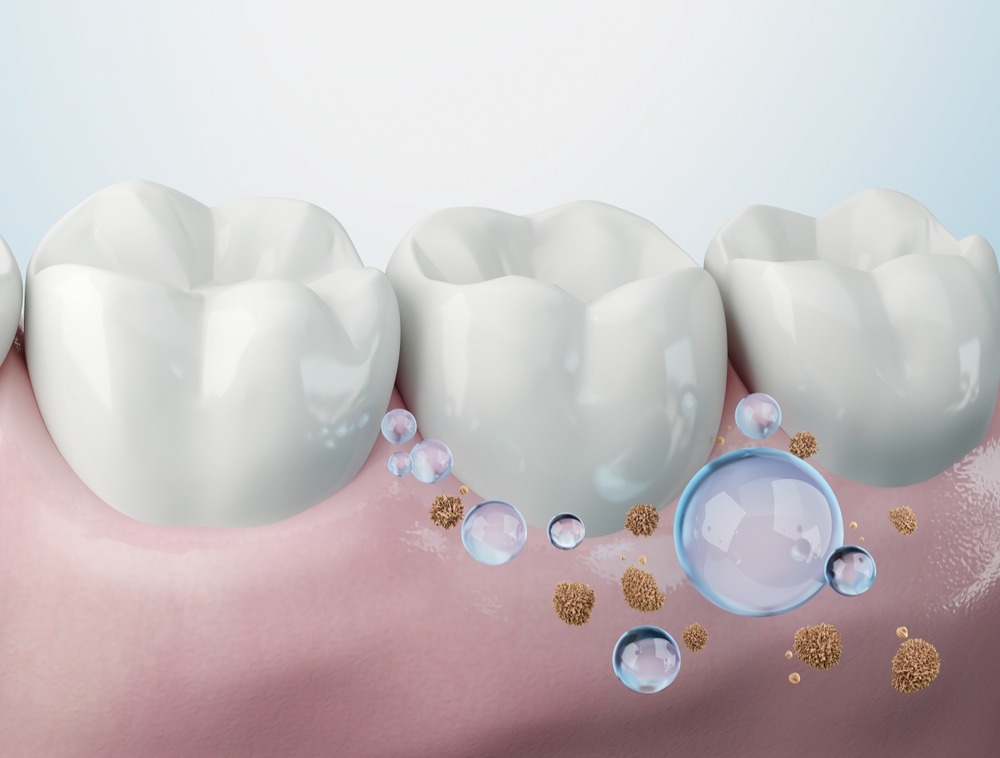

Dental health is not merely a cosmetic concern — it’s an essential part of overall body health. Maintaining daily oral hygiene, visiting the dentist regularly, and understanding dental implants and surgical procedures are all key factors in preserving a healthy smile and proper oral function.
Brushing your teeth three times a day isn’t necessary — twice daily (in the morning and before bedtime) is sufficient if done correctly for two minutes, especially after consuming sugary or sticky foods. It’s recommended to rinse your mouth with water or use a fluoride mouthwash, waiting 20–30 minutes before brushing to prevent enamel erosion.
Changing and Storing Your Toothbrush
Replace your toothbrush every 3 months or when its bristles begin to fray.
Avoid leaving it exposed near the toilet, as airborne bacteria can contaminate it. Store it in a dry, ventilated area, let it air dry after use, and avoid direct sunlight or covering it while wet.
Best toothbrush and toothpaste:
Electric toothbrushes are ideal for people with limited hand movement or improper brushing technique. Manual toothbrushes work well when used correctly.
- Types Bristle hardness: soft, medium, hard — soft is recommended for everyone.
- Children: small, soft head…Adults: soft bristles…Elderly or gum disease patients: extra soft and smaller head.
- Toothpaste: Price is not the key factor — look for fluoride concentration between 1000–1500 ppm, with lower levels for children based on age.
Flossing and Interdental Cleaning
- Use dental floss once a day, or interdental brushes for wider gaps.
- Insert gently and move along each tooth’s sides to avoid gum injury or inflammation.
- Bleeding while brushing is usually a sign of gum inflammation caused by plaque buildup.
- Continue brushing and flossing regularly and visit your dentist if the bleeding persists. Metallic or bloody taste in the morning:
- May indicate gum disease, periodontal pockets, teeth grinding at night, or dry mouth.
- A full dental evaluation is needed to determine the exact cause.
Dental Cleaning and Whitening at the Clinic
Removing Dental Calculus to Treat Gum and Tooth Inflammation
- Calculus is what weakens the gums and bones.
- Removing calculus helps gingivitis treatment and bone health, and does not cause any damage.
- It is usually recommended every 6 months, and in some cases requires it every 3–4 months.
- Mild sensitivity afterward is normal for 2–7 days and improves with toothpaste for sensitive teeth.
Cleaning methods:
- Manual cleaning (curettage): precise for hard-to-reach areas.
- Ultrasonic cleaning: faster and uses vibrations to break tartar.
- Most dentists combine both methods for the best results.
Polishing:
- Removes surface stains and smooths enamel, reducing future tartar buildup.
- Provides both aesthetic and mild functional benefits.
- Not every patient is suitable for implants — adequate bone density, stable overall health, controlled diabetes, non-heavy smoking, and good oral hygiene are essential.
- Post-procedure pain is usually mild and manageable; soft foods are allowed after a few days, with final restoration placed 2–4 months later after bone integration.
- Implants can last 10–20 years or longer with proper care but may fail due to smoking, poor hygiene, or uncontrolled diabetes.
- Though more expensive than traditional bridges, implants preserve bone and don’t require grinding adjacent teeth.
- Regular follow-ups are needed, with special floss or interdental brushes to clean around the implant.
- Dental and jaw surgeries are performed when medical intervention is necessary to protect oral health or adjacent teeth. Common cases include:
- Impacted or infected wisdom teeth, or those causing crowding — surgical removal may be required.
- Abscesses: Some can be treated with root canal therapy and antibiotics, but large abscesses or cysts may require surgical drainage.
- Cysts: Usually need surgical removal and histopathological examination to confirm tissue nature.
- Bone loss: Treated based on severity — deep cleaning, gum surgery, bone grafting, or extraction if the tooth cannot be saved.
- Risks and modern techniques: With modern tools, strict sterilization, and 3D imaging for surgical planning, risks are very low — but they still exist and should be discussed with your dentist before any procedure.
Contact Techno Clinic Dental Clinics and easily book your appointment.
- Blood on the pillow or during brushing: may indicate gum inflammation, periodontal pockets, dry mouth, or teeth grinding at night.
- Metallic or bloody taste: often from the same causes; maintain gum and tongue hygiene.
- Jaw pain: may result from tooth issues (nerve, gum, wisdom teeth), TMJ problems, or muscle tension.
- Nighttime teeth grinding (bruxism): managed with a night guard, reduced caffeine intake, stress management, and jaw relaxation exercises or physical therapy.
- Brush twice daily with fluoride and use floss once a day.
- Use a nightly fluoride mouthwash for high-risk cases.
- Reduce sugar intake and drink enough water.
- Have a dental check-up every 6 months to ensure your teeth are healthy.
- For children: use a soft toothbrush and a rice-sized amount of toothpaste under 3 years.
- Saltwater can help relieve pain temporarily, but does not replace toothpaste or fluoride — each has its role.
- Make brushing fun for children using sticker charts or colorful/electric toothbrushes.
- Complete cleaning — tongue cleaning and mouthwash — are all important to treat and prevent (unclean tongue, gum inflammation, dry mouth, gum pockets, reflux, sinus issues).
Nutrition and Dental Health
Dairy products, leafy vegetables, nuts, proteins, and water.
Harmful Foods
Sticky sweets, frequent snacks, and carbonated or sugary drinks.
Tips for Maintaining Children’s Teeth
- If a child likes sweets, offer them with a main meal rather than as a separate snack.
- Reduce the frequency of sweet consumption and rinse the mouth afterward.
- Replace unhealthy snacks with suitable healthy alternatives.
- Supplements are usually unnecessary if the diet is balanced. Vitamin D and calcium are only needed in cases of deficiency, after consulting a doctor.
Teeth Whitening
- In-office whitening is faster and safer, while home whitening is safe under medical supervision.
- It only affects surface stains and does not change the color of fillings or crowns.
- Temporary sensitivity may occur and can be managed with sensitive toothpaste or by reducing concentration or session time.
- Avoid abrasive natural recipes such as charcoal or frequent use of baking soda.
Natural Tooth Color
- Natural color variation depends on enamel thickness, dentin layer, genetics, and daily staining factors.
- Strength is not determined by color: yellow teeth are not necessarily stronger or weaker.
- Genetics, dentin shade, and skin tone have a direct impact on the natural tooth color.
- Dull color may be natural to previous trauma or old root canal treatment and requires a dental check-up.
- Medications and diseases: certain drugs like tetracycline, liver diseases, or enamel formation defects.
- Daily habits: smoking, coffee, and tea cause surface stains.
- Permanent vs. baby teeth: Permanent teeth are naturally darker because their dentin layer is thicker.
- Fluoride and abnormal enamel: enamel deficiency, excessive fluorosis, or abnormal dentin formation.
- Fillings and crowns: different materials have fixed colors that may change over time and are not affected.
- Diagnosis and follow-up: color evaluation is done through clinical examination, photographs, and shade guides to determine natural color and potential changes.
Folk Remedies and Abrasive Materials
- Sea sand, sea salt, frequent baking soda use, and acidic mixtures (lemon/vinegar) all damage enamel.
- The safe solution: regular brushing with fluoride, flossing, crunchy foods, and whitening under professional.
- Avoid excessive use of any abrasive substance, even with fluoride mouthwash or saltwater.
1. Do I need to brush my teeth 3 times a day, or is twice enough?
Brushing twice daily (morning and before bed) for 2 minutes each time is sufficient.
2. If I eat sugary or sticky foods, is rinsing enough, or should I brush? Rinse with water or a fluoride mouthwash and wait 20–30 minutes before brushing.
3. Sometimes I see blood when I brush… is this normal or a warning sign? It’s usually due to gum inflammation from plaque. Keep up oral hygiene and see a dentist if it continues.
4. Is an electric toothbrush better than a regular one? Electric brushes are excellent, especially if manual brushing is difficult, but a regular brush works fine with proper technique.
Professional Teeth Cleaning
5. Does tartar cleaning weaken teeth?
No, that’s a myth. Cleaning protects gums and bone; tartar is what causes damage.
6. How often should I get a professional teeth cleaning? Generally, every 6 months. Some cases may need cleaning every 3–4 months based on your dentist’s advice.
Dental Implants
7. Can anyone get a dental implant, or are there requirements?
You need enough bone, good general health, controlled blood sugar, and minimal smoking.
8. How long does a dental implant last, and can it fail? It can last 10–20 years or more with proper care. Failure can occur with smoking or poor oral hygiene.
9. After getting an implant… is follow-up or maintenance required? Yes, regular check-ups and cleaning around the implant using special brushes and floss are necessary.
Gum Bleeding and Jaw Pain
10. I wake up with blood on my gums… what causes this?
Gum inflammation, dry mouth, or grinding teeth during sleep. A dental evaluation is needed.
11. I have persistent jaw pain… could it be my teeth or the jaw joint? It could be either. A proper examination is needed to identify the cause and treatment.
Teeth Whitening
12. Is teeth whitening better at the clinic or at home?
Clinic whitening is faster under supervision; home whitening is safe if done according to the dentist's instructions.
13. Can whitening cause sensitivity, and is it suitable for all ages? It may cause temporary sensitivity and is safe for adolescents under supervision. Not recommended for children.
14. After whitening… can my teeth become yellow again? How do I maintain the results? Yes, if old habits return. Reduce coffee, tea, and smoking, and get periodic polishing.
 Complete Blood Count (CBC) Test - What You Need to Know
Complete Blood Count (CBC) Test - What You Need to Know
 Daily Dental Care: Your Complete Guide to Perfect Oral Health
Daily Dental Care: Your Complete Guide to Perfect Oral Health
 Therapeutic & Preventive Nutrition: Better Health Guide
Therapeutic & Preventive Nutrition: Better Health Guide

© 2026 Techno Clinics is Proudly Owned by Techno Clinics